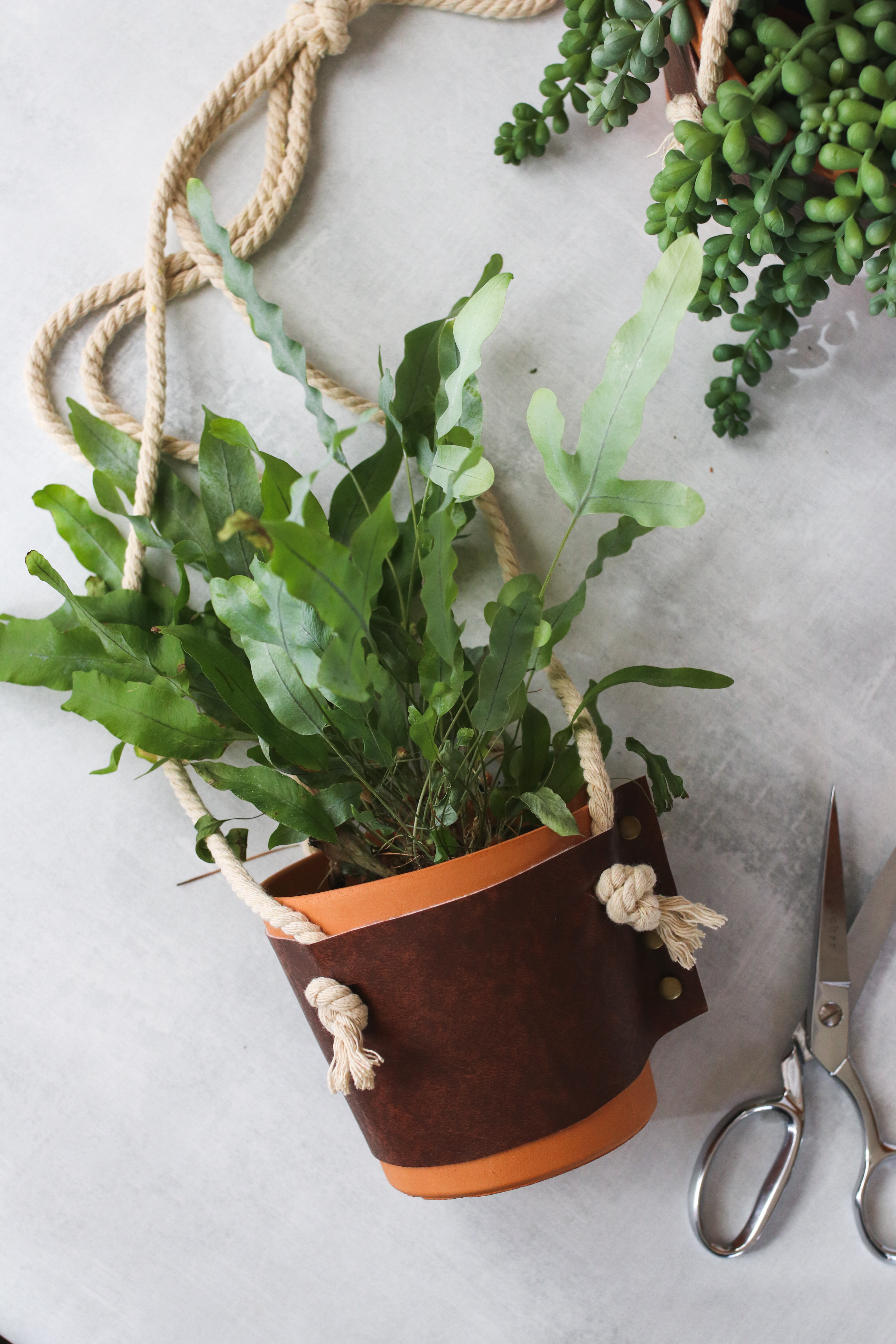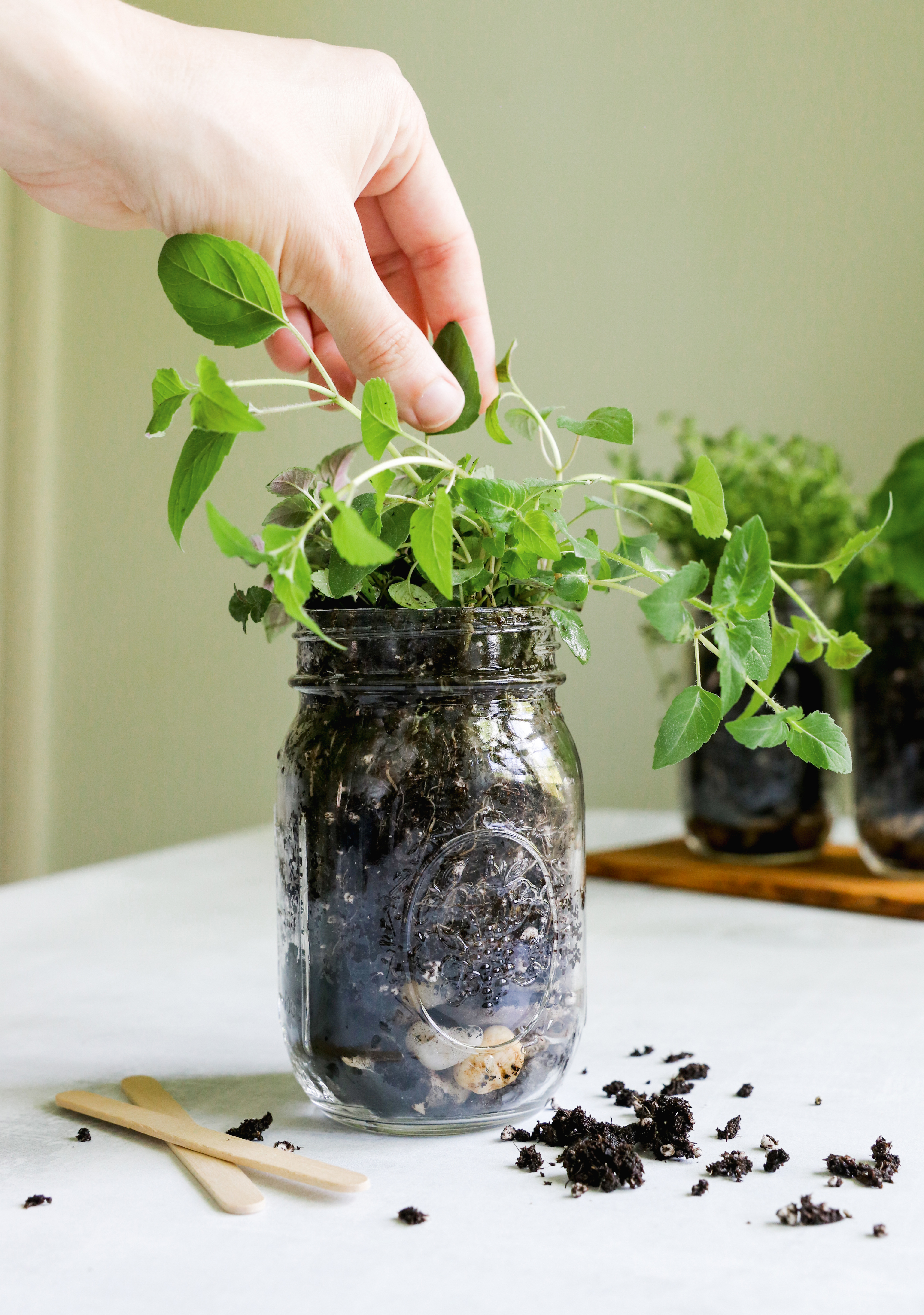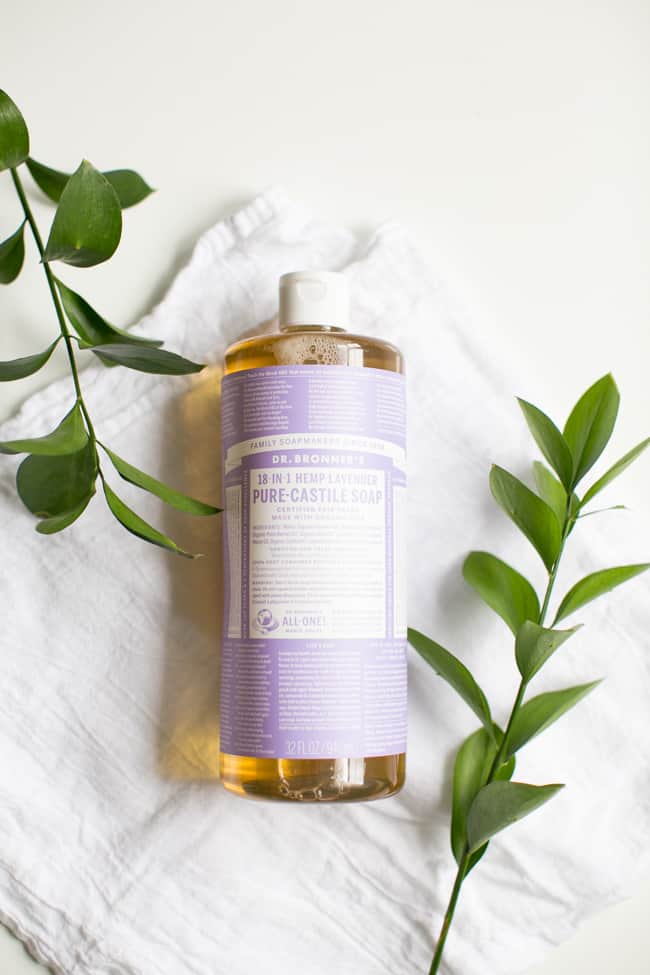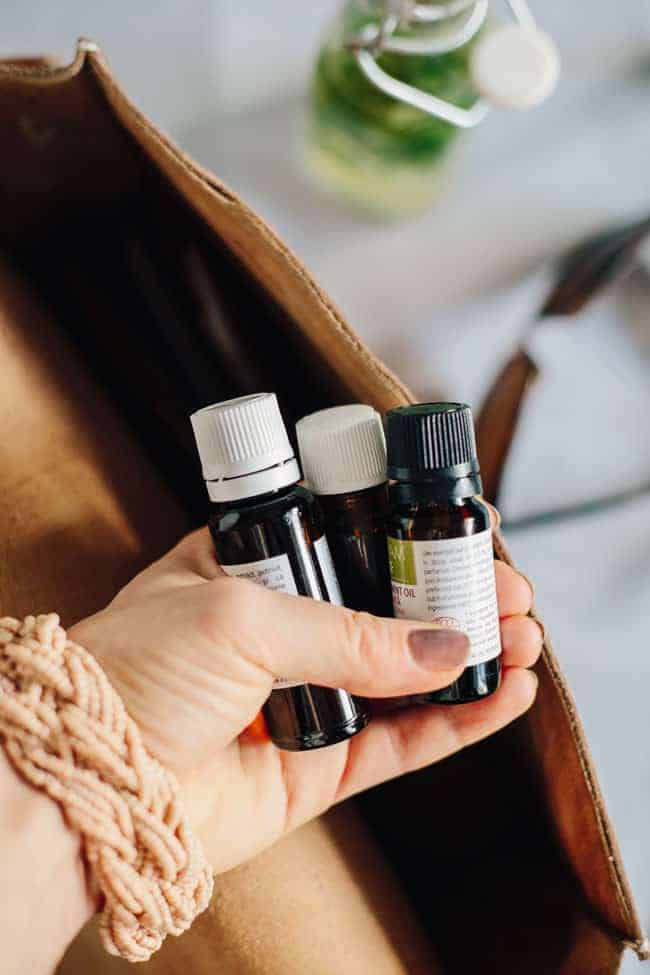It can feel so disheartening to see our beautiful beloved houseplants fall victim to pest infestations, and overwhelming to know just what to do about it. Indoor plants are most susceptible to pests in the winter as they are weaker in their dormant state, and they are also more enticing to bothersome bugs when they have been stressed (overwatered, not enough light, fluctuating temperatures, or infected with root rot).
A healthy plant is a robust plant, and this means they are more resistant to pests when they are happy. So while the first course of action will be to take a closer look at the specific care needs of the plants you have on hand, the next step will be identifying and fighting off the pesky pests.
Kill Houseplant Bugs With These Foolproof Methods

The most common houseplant pests:
Aphids —found most often in the flower buds or new leaf growth, these look like little brown or red beetle specks;
Gnats—found around the leaves and stem, these ones look like like tiny fruit flies;
Mealybugs—found along the leaves and stem, mealybugs look like flat white dots, and they leave a sticky residue and a cottony mildew behind.
Scale—found on both sides of leaves and stem, scale look like flat brown scabs or dots; you might notice the sticky goo they leave behind on the leaves before you even see the bugs;
Spider mites—these are tiny freckle-sized spiders, and you’ll see their webs, or find them clustered together in groups on the underside leaves.
Once you have an idea of the kind of pest you’re dealing with, you can try one of these effective, gardener-recommended home remedies. Sources say it’s best to do a test spray on a leaf or two of your plant so that you can see how well it tolerates the treatment after 2-3 days before dousing the whole thing.
You’ll also want to keep a freshly-sprayed plant out of direct sunlight so that the leaves don’t burn, and isolate any plants you’re treating from otherwise healthy ones to prevent the infestations from spreading.
1. Cooking oil to kill houseplants bugs
Good for: aphids, spider mites, scale
This spray is easy to whip up, and uses items you’ll likely have readily on hand. In a glass jar, mix together 1C of whichever cooking oil you have (canola, peanut, olive, etc.) with 1Tbsp mild dish soap. From this combined mixture, take 4 tsp and combine with 2C water in a spray bottle.
Mix together and mist the entire plant. Wait a week between treatments, and multiple sprays may be needed to fully eradicate the bugs (source).
2. Fresh herbs that kill houseplant bugs
Good for: spider mites, aphids, other pests (ants and spiders)
From your garden or fridge, gather together a packed 1/2 C of fresh peppermint and rosemary. Crush them to release their oils, and place them in a container with 3C of water. Allow this mixture to steep for a day or two, and then strain the water into a spray bottle.
Add 1/4 tsp of whichever mild dish soap you have on hand into the herb water, and shake well before using. This mixture is mild enough to spray your plant once per day, but keep it out of direct sunlight while treating (source).
3. Castile soap
Good for: aphids, mealybugs, spider mites.
Insecticidal soap sprays are cheap and effective solutions to your houseplant pest problems. Is there anything Castile soap can’t do? Mix together 1Tbsp Castile soap in a 1qt spray bottle and fill completely water, making a 2% solution.
Spray both the plant and the soil completely with the soap mix, and wait a week before treating again if needed. If you notice the waxy soap is building up on the leaves, you may need to rinse the plant well before re-treating (source.)
4. Neem oil
Good for: fungus gnats, aphids, mealybugs, scale
By far the most referenced pest solution, neem oil is a natural oil that is not only an effective insecticide, but only harms the pests that munch on the leaves, so you won’t need to worry about harming the beneficial insects. It’s also non-toxic to humans and pets.
Mix together 2Tbsp of neem oil with 2C of water, and spray generously over the entire plant. Wait a week before re-applying if needed. If you have a soil infestation, you can try soaking the soil with a mixture of 1tsp of neem oil diluted with 2C of water. Don’t fertilize until you are certain that all pests are gone (source).
5. Essential oils that kill houseplant bugs
Good for: aphids, gnats, mealybugs, spider mites
Another great natural way to fight the houseplant pests is to whip up an essential oil mixture of 10-12 drops of oil to 4oz of water in a spray bottle. Use either 10 drops peppermint oil, or a mixture of 3 drops each of clove, peppermint, rosemary, and thyme. Spray this mixture generously on leaves and stem to control pests as needed (source).
6. Rubbing alcohol
good for: aphids, mealybugs, and other pests
If you have some pretty resistant pests, it may take something with a stronger punch. Try 1 part rubbing alcohol to 7 parts water in a spray bottle, spray down the entire plant, and leave it to rest for 5-6 hours before giving the plant a good rinse. Wait a week before treating again if needed (source).
Rules of Thumb
A few good “green-thumb” rules of thumb to keep in mind: always carefully inspect any new potting soil before adding it to or repotting your plants (check for any evidence of bugs); isolate new plants for a few days before adding them in to your collection so you have a chance to see if they might be carrying any pests along with them; and to give your plants (leaves, stems, and soil) a good spray down before bringing them inside from the outdoors.
Be on the look out for any yellowing leaves, cottony webs or sticky substances on the leaves, or even a whiff of an odd sweet “honeydew” smell as sometimes it’s not the sight of the bugs themselves that sends off the signal that you’re dealing with pests. Armed with the right tips and a few kitchen cupboard staples, you’ll have a house full of healthy, happy blooms in no time and no need to kill any houseplant bugs.
1



Leave a Reply